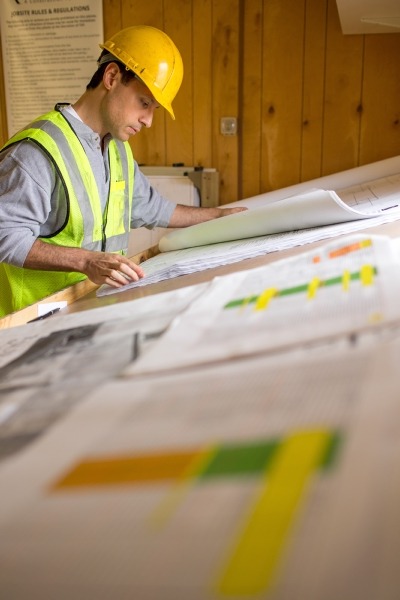
Choosing the right contractor for your renovation or building project is one of the most important construction decisions you will make. A good contractor can ensure quality work and a smooth renovation, while the wrong one can trigger nightmares. Here are eight tips to help you make the right choice when hiring a contractor:
1. Have plans ready
Know exactly what you want in terms of plans and building materials before interviewing contractors. The more details you can provide, the more accurate their bid will be.
2. Get recommendations
Get recommendations from family and friends, local builders’ associations such as the National Association of the Remodeling Industry and your local Master Builders Association and from sites including Angie’s List. Although building inspectors may not give recommendations, they may tell you whether particular companies’ work generally passes initial inspections.
3. Interview candidates
Ensure candidates routinely build projects of the type and size you are proposing. Talk with three or four contractors about your project, expectations and timeframe. Learn how many projects they work on simultaneously, and get references and a list of recent projects. Also, ask how long they’ve worked with their subcontractors. Contractors should be willing to provide financial references from suppliers or banks.
4. Check licensing
Expect to see candidates’ state contractor’s license and certificate of insurance. Most states require contractors to have workers’ compensation, property damage and personal liability insurance. Check with the Better Business Bureau or your state consumer protection agency to learn whether contractors on your list have liens against them from former clients, suppliers or workers. An Internet search also may reveal valuable intelligence.
5. Visit job sites
Assess their crews’ work ethics for yourself, including how they treat others’ property. Do they minimize construction debris and dirt? Do they start work quickly or spend undue time on breaks?
6. Get bids
Have your top two or three candidates provide written bids for your project, based on the same specifications. Insist they categorize costs for materials, labor, profit and any other expenses. Common bid items are time and materials, fixed price and costs plus fixed fee. Expect materials to account for about 40% of the overall costs and profit to account for 15% to 20%. The lowest bid isn’t necessarily the best. If it’s significantly lower, that contractor may cut corners. If bids are comparable, choose the contractor with whom you best communicate.
7. Set a payment schedule
Payment plans vary according to project size. Expect to pay 10% of the estimated cost when the contract is signed and three payments of 25% evenly spaced throughout the project. The final payment should be made only after you are satisfied with the completed work.
8. Put the contract in writing
Incorporate every project detail in the contract. That includes: payment schedule, proof of liability insurance, workers’ compensation, start and finish dates, materials to be used, a lien release in case the contractor fails to pay suppliers or subcontractors and how changes will be handled.
If your top choice isn’t available, it might be a good sign. Usually the best contractors are busy, so be patient and be prepared to wait to start your project, with the right contractor.
Be sure to contact your Nationwide Insurance agent before you begin work and after your project is complete to ensure your homeowners policy will cover your project and any improvements you’ve made.

No comments:
Post a Comment